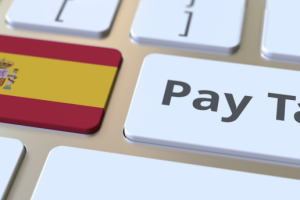Coronavirus and your business
With the news of Selfridges and Fenwicks shutting up shop, the question must be asked, how many will follow? The impact of closing retail to the face-to-face public will be felt, no doubt, throughout the supply chain. Suppliers to Pavers Shoes have already been requested to “share the pain” by agreeing to a 10% discount or extended payment terms. Given the current situation, it is without doubt that manufacturers, suppliers, logistic companies, platforms and brands will all be turning to their contracts in order to see whether coronavirus justifies their non-performance. Or in legal terms, whether coronavirus amounts to “force majeure” or frustration.
Where there is an event outside of the control of the contracting parties that in turn prevents a party from fulfilling its contractual obligations, this may amount to force majeure. It is common for such a provision to be included in commercial contracts. Whether coronavirus will trigger a force majeure clause will depend on:
- the terms of the force majeure clause itself; and
- the circumstances which it is said have resulted from the occurrence of the force majeure event.
In contrast, whilst frustration is a recognised concept of English law, it is much more likely that parties to a commercial contract will focus on force majeure not least as historically the English courts have been unwilling to confirm that a contract is frustrated.
The force majeure clause
“War”, “strike”, and “riot” are often specified force majeure events in a commercial contract. Their meanings can be considered to be quite clear. Equally, “act of God”, whether it be hurricane, flood or earthquake. But, “pandemic”?
Whether pandemic amounts to a force majeure event will depend on what the contractual provision actually says, the subject matter of the contract and at what stage and for how long the parties have been aware of the event and its impact.
The circumstances
Even if a party can argue that coronavirus does come within the scope of a force majeure event for the purposes of its commercial contract, does the impact of such an event permit that party to rely on force majeure in not fulfilling its contractual obligations?
Given the time that has now elapsed since coronavirus was declared a pandemic by WHO, should the parties have taken steps to mitigate its impact and is the event truly still out of the control of the parties?
For example, could a manufacturer that has not sought out possible alternative sources of supply be criticised for failing to foresee that its supply lines could be impacted by this pandemic?
In any event, regardless of whether an event is foreseeable, an event may still be outside the control of the parties and constitute a force majeure.
The issues
Looking to justify non-performance by relying on force majeure?
A party must go beyond demonstrating that performance of its contractual obligations has become unprofitable or simply more difficult. It is necessary to show that performance has become legally or physically impossible.
Force majeure being cited by your counterparty?
Thinking about the various ways a counterparty can still perform its obligations may be useful, in case a counterparty starts to, or hints at, relying on force majeure. By putting across various suggestions, this may help in defending any argument made by a counterparty that it has become impossible to fulfil its contractual obligations.
If force majeure does apply, the performance obligations (either of the impacted party, or both parties, depending on the wording of the contractual provision) are usually suspended for the length of the force majeure event. For example, instead of all production runs being impacted, it may be the case that only specific production runs are in fact impacted by the event.
As such, even if a force majeure event does occur, this may provide only temporary or limited relief to a party looking to exit its contract. However, if the force majeure event continues past a certain period of time, depending on the wording of the contractual provision, the force majeure event may provide a party a right to bring the contract to an end.
Take home points
With no current end in sight of the current disruptions felt throughout the supply chain, the scale of the impact of coronavirus is unknown. Below are a few points to consider now and in the coming months when considering your business and coronavirus.
- Look over your contracts and be ready to highlight to your counterparty your rights and its obligations if necessary:
1.1 is there a force majeure clause in the contracts?
1.2 If so, would coronavirus come within the definition of a force majeure event?
1.3 Is there an obligation to give notice if a force majeure event occurs?
1.4 Is there a maximum amount of time during which obligations of the parties are suspended? Does this apply to both party’s obligations or only the party who’s actions under the contract are impacted by the coronavirus?
1.5 Is there a right to give notice to terminate the contract if the force majeure event continues for a certain period of time? Is this a right for both parties, or only the party that is no longer receiving the benefit of its counterparty’s performance under the contract?
- Look to see whether you have a right to call on your counterparty to make payment to you if the counterparty breaches certain performance obligations. However, caution is needed - these types of payments are at risk of being categorised as unenforceable penalty payments under English law!
- Consider what actions you can take to mitigate your loss after you receive a notice from your counterparty that it is seeking to rely on force majeure, or, you give such notice.
- Whilst bringing an unfavourable contract to an end due to force majeure event may seem attractive at first glance, consider what you will do post-termination:
4.1 do you have another counterparty lined up that can step into the contract at short-notice;
4.2 do you need to conduct an audit on your new counterparty – if so, how long will this take; and
4.3 will a change in your contractual relations impact other contracts to which you are a party?
Stephen Sidkin
UIA Counselor to the President
Fox Williams LLP
London, United Kingdom
Lucy Coffey
Fox Williams LLP
London, United Kingdom






